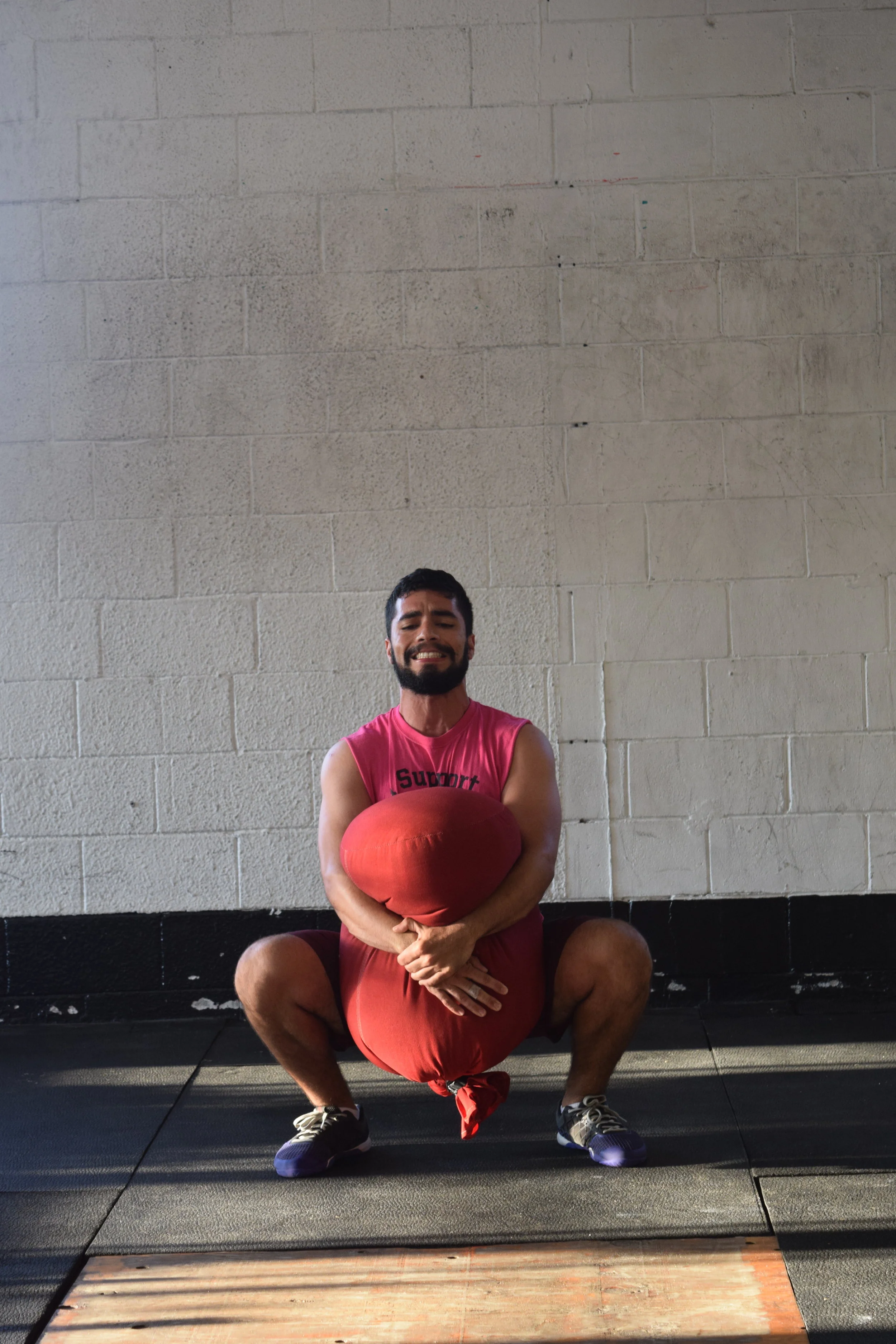We do not avoid discomfort. We meet it with calloused hands and sweating brow, knowing that, to run from it is to run to it.
The 5 Best Gyms in Gainesville (And Why You’ll Probably Join the Last One)
So you’ve decided to get fit in Gainesville. Maybe you’re tired of your couch judging you. Maybe you accidentally saw your reflection in a Publix freezer door. Or maybe — just maybe — you’ve been inspired to become the strongest version of yourself. Whatever your reason, Gainesville’s got some excellent options for every flavor of gym-goer.
From CrossFit crushers to barbell nerds, here are five locally-owned Gainesville gyms that are worth checking out — including a hidden gem at the end you’ll definitely want to visit.
1. Go Primal Fitness
Best for: CrossFit-style classes, high-intensity group training
Why we love it:
Go Primal has that gritty, “let’s go” energy you want from a CrossFit-style gym — without the intimidating vibes. Owner-operated and owner-coached (yes, the big boss still leads classes), this gym is the real deal for people who want to sweat, grunt, and PR with friends. It’s community-focused and refreshingly no-nonsense.
2. Gainesville Barbell
Best for: Powerlifting and barbell purists
Why we love it:
If you know the difference between a sumo deadlift and a conventional one — or want to learn — this is your spot. Gainesville Barbell is family-owned and caters to lifters who love chasing strength over aesthetics. It’s the youngest gym on this list (founded 5 years ago), but it’s quickly become the stronghold for Gainesville’s powerlifting crowd.
3. Gainesville Wellness and Performance
Best for: Boutique vibes with serious coaching
Why we love it:
If you want your gym experience to feel like a spa with kettlebells, this is the place. GWP is pristine, modern, and still keeps it personal — every coach knows their stuff, and it shows. It’s the kind of gym where the coaches really know their stuff, and will help you reach your goals, without intimidation. Plus, they have massage therapists and physical therapists on staff. So, if you’re dealing with a nagging injury, and would like to get moving, this is the place for you! GWP is professional, clean, and run by a dedicated family team.
4. 352 Fitness
Best for: Competitive CrossFit Athletes
Why we love it:
Run by a badass coach who also owns the space, 352 Fitness has been in the game for over 10 years, and their coach-owner is also a Grid-League Coach. So, if you’re looking for that competitive edge, and a coach with experience coaching a competitive grid-league team, this will be the place where you can grow in that regard. One thing is to have a CrossFit Coach — it’s another thing entirely to have a coach who will take you to competitions.
5. The Ark School of Fitness
Best for: Olympic weightlifting, beginners, and people who want it all
Why we love it:
Gainesville’s hidden gem, The Ark is the proud home of the UF Weightlifting Team — three-time national champions (2022, 2023, 2024). Whether you’re a seasoned athlete or you’ve never touched a barbell, The Ark is uniquely positioned to support you: it’s the only gym on this list that combines expert coaching, beginner weightlifting classes, personalized programming, AND 24/7 open gym access — all included in your membership.
Coach Michael Espinosa (yes, a real national coach, not just a guy with a clipboard) leads a team of welcoming, knowledgeable staff who actually like helping beginners. And did we mention the free trial class?
👉 Come try a class for free — and see why The Ark School of Fitness might be exactly what you’re looking for.
Honorable Mentions
Gainesville has a rich gym culture. For the sake of this article, we couldn’t include all of the family-owned boutique gyms. Places like Lead Fitness, Liv Athletic, Women’s Lift Lab, and Senkai Strength all deserve honorable mentions as other great places to train.
That said, we gave you the five best — all family-owned, locally run, and owned by people who actually coach. No big-box chains, no influencers with ring lights. Just Gainesville grit, sweat, and iron.
We hope you enjoyed this article, and hope you find the right fit for YOU!
See you under the barbell.
Use This One Secret to Gain Muscle — Fast
If you’re trying to gain weight and it isn’t working, it’s not because you’re broken. It’s because eating enough—consistently—is actually very difficult. Especially if you’re busy, not super confident in the kitchen, and generally not thinking about food until you’re already hungry.
What usually happens is this: you forget to eat, or you eat just enough to take the edge off. You stop when you feel “fine,” not when you’re actually full. You figure you’ll eat more later, but later comes and goes. Over time, that adds up to not enough fuel. And if you’re training, under stress, or even just moving around a lot during the day, you may be burning far more than you realize. That’s where the gap happens.
The habit I recommend is simple, but powerful: eat until you’re 100% full—every meal. Not “kinda full.” Not “this is probably enough.” Not “I’ll just have a snack later.” Full. As in: “I don’t want another bite.”
You know this feeling. Think, “Thanksgiving.”
Also, it really helps to eat AS FAST AS POSSIBLE.
This one habit does a few important things. First, it forces you to tune into your internal cues and learn what fullness actually feels like—not just comfort or satiety, but true completion. Second, it helps you build a reliable calorie surplus without needing to track or count. And third, it brings intention to your eating habits. You stop letting meals be an afterthought.
At first, this might feel strange. If you’ve had a small appetite or been stuck in a pattern of under-eating, eating to full can feel like a lot. That’s okay. The body will adapt. You’re training it, just like anything else.
Make your meals simple and repeatable. You don’t need to be a chef. Find three or four meals you like, and make them over and over. Meals that are warm, dense, and easy to prep—things like pasta and ground beef, rice and eggs, oats with peanut butter. Add things like olive oil, cheese, nuts, or avocado if you need more density. And don’t be afraid of liquid calories—milk, smoothies, even meal replacement shakes can help you stay on track when time is tight.
This isn’t about perfection or performance. It’s about repetition. You don’t need to track, count, or stress. Just show up to the plate three times a day, eat until you’re 100% full, knowing that this one thing will — along with consistent resistance training — will bring you closer to your goal of a bigger, more muscular body in due time.
When Thinking About Weight Gets in the Way, Will Power is not the Problem
There’s an interesting body of research suggesting that constantly thinking about your weight—tracking, obsessing, checking, comparing—can actually make it harder to lose weight.
It’s paradoxical, but true: repetitive dieting is rarely an effective long-term solution to unwanted weight gain.
The reason isn’t your lack of willpower. It’s cognitive load. When your brain is tied up worrying about how you look or whether you’re doing “enough,” that mental effort eats up the bandwidth you need for self-regulation. If your head is full of noise, it’s a lot harder to make clear, measured decisions. Willpower has nothing to do with it. In fact, trying too hardmay be what’s making it harder.
One study found that dieters performed worse on tasks that required focus—especially when food cues were present (Green et al., 2005). Another showed that excessive body monitoring (called “body surveillance”) increases stress and reduces cognitive performance (Fredrickson & Roberts, 1997).
We also know that stress—especially from internalized weight stigma—can elevate cortisol, a hormone that promotes fat storage and makes metabolic regulation more difficult (Tomiyama et al., 2014).
Luckily, you’re not screwed. You just need a better approach.
Focus on what matters: internal cues.
Breaking the dieting cycle starts with breaking restriction. In today’s diet culture, everything has been taken off the table: no carbs, no fat, no sugar, no beans, no... food?
No, no, no.
Restriction creates hyper-vigilance. It amplifies mental noise.
Instead of fixating on what to cut out, shift toward saying yes—yes to foods you enjoy, yes to the internal experience of eating.
If you want to get over a mental block, you need Jedi mind tricks.
You need to master your mind.
Start by eating slowly.
Notice what happens when you try.
Set reminders so you actually remember to try.
And yes—eat whatever you want.
Enjoy it.
This isn’t the one magic solution. There’s also:
• How you talk to yourself inside your own head (your internal dialogue)
• How you see your body
• Whether you move with intention, consistently
• Stress in other areas of your life
• Whether you're financially secure—or constantly worried
• The foods in your kitchen
• Your cooking skills
But eating slowly is the one thing everyone can practice, regardless of context.
It’s food yoga.
A meditation.
It’s simple, but not easy.
Which means it’s worth doing.
And when you do—notice what comes up…
and keep practicing.
This is the Key to Happiness - Know Why: How Sub-optimization Might Ruin Your Life
If you never do the work to find out what your true purpose is, you will optimize your life for the wrong thing.
This is known as sub-optimization.
Think about the touchless faucets at rest stops. The purpose of a faucet is to wash your hands, but these faucets aren’t really good at that.
You have to wave your hand underthe faucet for 2 minutes to get it to start. Maybe you have to scoot over to the next faucet because the sensor doesn’t register that you’re there.
Then, it squirts water for two seconds and your hands are still soapy. So, you wave again, and the cycle continues.
These faucets are great at *saving water,* but they are not great at the thing they should be great at: washing your hands.
That’s sub optimization at work.
Sometimes we say things like…
I want a 500lb Deadlift.
I want to make X dollars a year.
I want to lose 20lbs.
All those things are great, but if you have never done the work to understand WHY you want those things, you’re running the risk of suboptimizing your LIFE, and that would be a damn shame.
++
The person who wants that 500lb deadlift really just wants to feel strong and confident. They want to impress their partner and play with their children into their old age.
But, they never do the work to really dig deep and find their purpose — their true why. So, they go out and seek the 500lb deadlift.
On their journey to this arbitrary number, they hurt their back. They can’t play with their kids, and sex is limited to the supine position.
This person lost sight of the *true* goal, and as a result, their pursuit had the opposite effect of what they *really* wanted.
++
The person who wants more money really wants to be admired by their peers. They also want the financial freedom to be able to take vacations with their family. They want to have a positive impact on the world.
But, instead, they suboptimized for money. Now, they work 80 hours a week, never see their family, and are so stressed out that they can barely muster the energy to be a good person most of the time.
They’ve become so entrenched in their pursuit of a surface goal, that everything else — all of the important things — fall to the wayside.
++
The person who wants to lose 20lbs really just wants to feel sexy again.
What they don’t realize is that they can be sexy *without* losing weight. Losing weight is not the BIG GOAL — it’s just a small part of a much bigger picture. They can lose weight and be sexy, too, but that’s not what is keeping them from *feeling* sexy.
So, they lose the weight and never feel sexy, because they never worked on the things that were keeping them from that feeling in the first place. They never really got clear on their *why,* so they were never able to get what they really wanted.
++
Knowing your “why,” is quickly becoming a cliché. Like most awesome things that get discovered, they get so played out and watered down, that these discoveries quickly lose their meaning.
Listen to your body…
It’s not a diet, it’s a lifestyle...
Know your why…
Yeah, all of that is cool, but HOW?
++
There are a myriad of exercises one might do to get to core of why one really wants something. But for the sake of time, I’ll leave you with two simple questions:
What’s a surface goal you really want for yourself?
When you achieve that big goal, what’s the thing you would have that you didn’t have before?
++
Good luck, Pilgrim! May your journey be clear, and your steps sure :)














